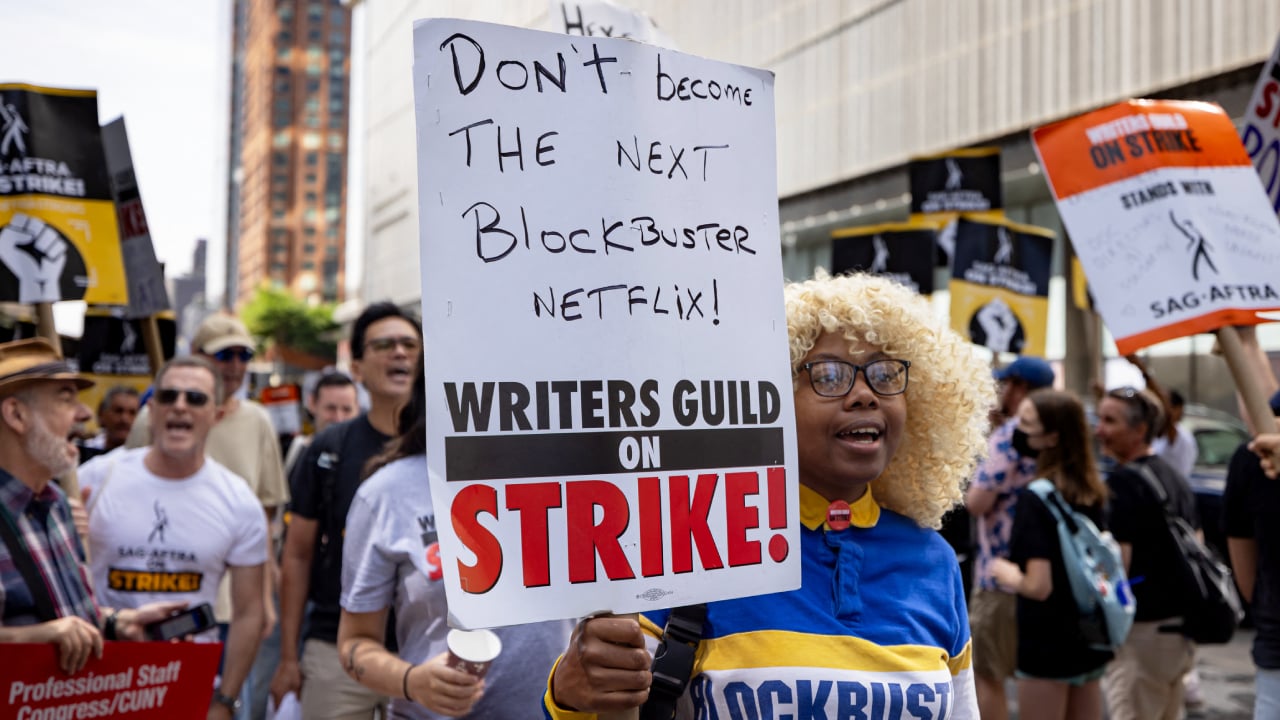Victory for screenwriters in Hollywood: the union won its case with the studios for a new agreement after 5 months of strike. What did the writers gain following these long negotiations?
The Hollywood screenwriters’ strike is officially over. After 146 days of struggle, the WGA (Writers Guild of America, the union of American screenwriters which protects their copyrights) finally won its case with the AMPTP (the Alliance of Cinema and Television Producers) on Sunday September 24 by establishing an agreement in principle.
Two days later, the union officially announced the end of the strike – the longest in history for screenwriters – which aimed to upgrade their rights and their working conditions, to increase their fixed and residual salaries ( royalties) particularly on streaming content but also to regulate the use of Artificial Intelligence.
The WGA committee told its members this was a historic agreement in a statement: “We can say, with great pride, that this agreement is exceptional – with significant gains and protections for writers and screenwriters across all sectors of the union.”.
Victory for the screenwriters
So what are the details of this exceptional agreement concluded between the screenwriters’ union and the studios? Deadline had already indicated that the WGA had succeeded in negotiating the extension of its members’ health insurance until the end of the year for those who were going to lose it.
Today, Variety reveals the main terms negotiated by the screenwriters’ union, which published the full 94-page contract along with a summary of the new terms.
The deal includes better pay terms and protections for the use of Artificial Intelligence in the writing process, such as:
- AI cannot write or rewrite a work, and AI-generated content will not be considered source material under the contract, meaning that AI-generated content cannot be used to infringe on a writer’s credit or separate rights.
- A screenwriter may choose to use AI in his or her writing work, if the studio consents and provided the screenwriter follows applicable company policies, but the company cannot require the screenwriter to use AI software (e.g. ChatGPT) when writing.
- The studio must disclose to the writer whether any materials provided to the writer were AI-generated or incorporate AI-generated content.
- The WGA reserves the right to assert that exploitation of Writers’ Materials to train AI is prohibited by contract or other law.
Another big victory for the screenwriters, as highlighted Los Angeles Times : the increase in residual payments. They will have better bonuses depending on the audience of films and series on streaming services on the basis of a system which is intended to be proportional to the success of the work.
And the platforms will have to be more transparent with authors on this subject: the new contract allows the WGA to receive confidential audience measurements for original streaming shows, based on hours viewed.
Finally, the screenwriters will have better working conditions since a minimum staff level has been established proportionally. For series in particular, a minimum use of writers per episode applies.unless a single writer is employed to write all the episodes in a season“.
For other series, a plan has been established as such: for series with up to 6 episodes, for example, three writers must be hired, and for series with 13 episodes or more per season, the minimum staff is six writers, which may include three writer-producers.
If the writers have won their case, the actors – still on strike – do not despair of also finding an agreement with the studios via their union SAG-AFTRA. According to Deadlinethe AMPTP and the actors’ guild could finally meet again to discuss a new contract in the coming days.
